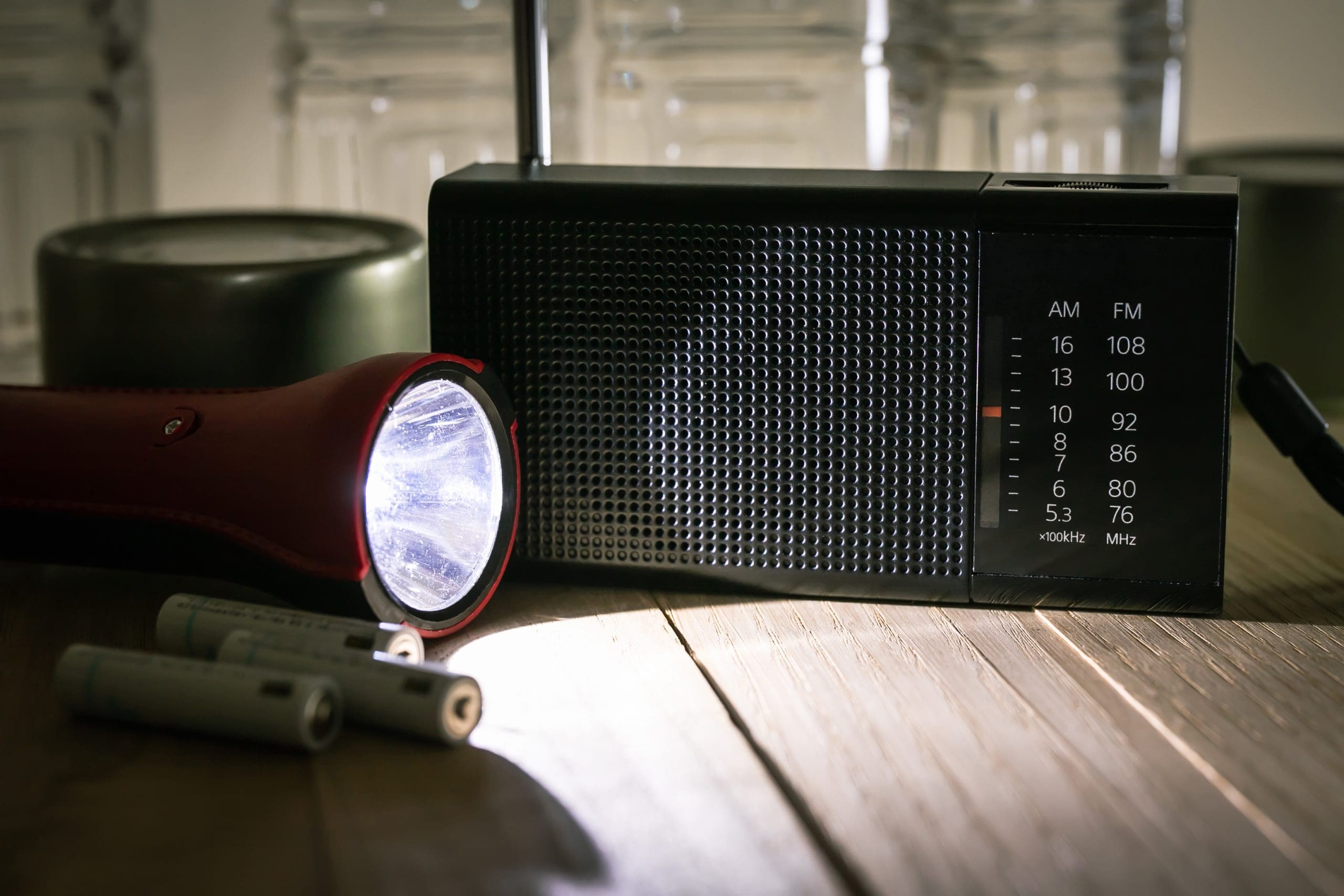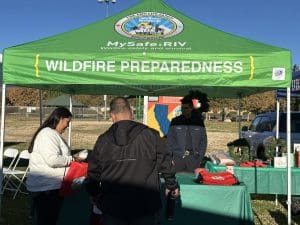As climate change increasingly impacts our communities, individuals and families must take proactive steps to ensure they are well-prepared for potential power outages. This week (starting October 18, 2024), several counties in California are experiencing critical “Red Flag” weather conditions. In response, local power providers often take the precautionary measure of shutting down power services to mitigate the risk of wildfires during these wind-driven events, which are directly linked to the National Weather Service’s (NWS) Red Flag warnings.
Preparing for an extended power outage requires careful planning and execution. Establishing strategies that prioritize safety, maintain communication, and promote comfort while waiting for the power to be restored is vital. Here are some crucial measures that people can implement to enhance their readiness for such emergencies:
- Create an Emergency Kit
Creating an emergency kit is one of the best steps for your whole family, including your beloved pets! Having one kit at home and another in your vehicle is a great idea so you’re always prepared, no matter where you are.
- Flashlights & Batteries: Keep several flashlights and extra batteries in easily accessible locations.
- Battery-powered Radio: Utilize it for emergency updates in case communication networks fail.
- First Aid Kit: Ensure it’s fully stocked and accessible.
- Water & Food: Store at least one gallon of water per person daily for at least three days and non-perishable food items that don’t require cooking.
- Manual Can Opener: A hand-operated can opener for canned food is needed.
2. Communication & Power
We all love having our phones charged and ready to go! But when a power outage hits, keeping your phone charged and your food fresh in the refrigerator can be challenging. The good news is that many vehicles come equipped with USB ports, so you can charge your phone while on the road. Still, creating a solid power plan for outages is imperative to ensure your family stays safe and secure.
- Backup Chargers: Invest in portable phone or solar-powered chargers to maintain communication.
- Backup Power Source: If you can, set up a generator or battery backup system and ensure you’re familiar with safe operation.
- Emergency Contacts: Maintain a printed list of essential phone numbers for situations when digital access is unavailable.
- Landline Phone: Use a corded phone since cordless models may fail without power.
3. Prepare Your Home
In the event of a power interruption to your home, it’s crucial to immediately prepare your residence for a state of being “powerless ready.” This involves several key actions that can help mitigate the challenges and concerns associated with a power outage, whether it lasts just a few minutes or persists for several days.
- Unplug Electronics: Prevent damage from potential power surges by unplugging sensitive electronics, such as computers, TVs, and appliances.
- Maintain Refrigerator & Freezer: Keep the refrigerator and freezer doors shut to maintain cold temperatures. A packed freezer can keep food frozen for approximately 48 hours if it remains closed. Keeping the refrigerator door closed can keep food cold for approximately four hours.
- Alternate Light Sources: Consider getting candles, lanterns, or glow sticks, but be careful with open flames.
4. Plan for Medical Needs
Before a power outage happens, think about any medical needs you might have and make a plan ahead of time. It’s always good to be prepared!
- Backup Plan for Medical Devices: If you depend on medical devices that need power, consult your doctor about backup solutions like batteries or alternative care options.
- Medications: During an outage, keep medications requiring refrigeration in insulated coolers with ice packs.
5. Safety Precautions
No one enjoys considering a “worst-case scenario,” but taking essential steps in a power outage is wise. During emergencies, our thinking can become clouded, so it’s helpful to create a checklist to depend on while you follow essential safety measures.
- Carbon Monoxide Safety: Avoid using a gas stove, oven, or barbecue indoors for heating or cooking, as it can cause carbon monoxide poisoning.
- Fire Extinguisher: Always have a fire extinguisher close at hand when using candles or portable heaters.
- Stay Warm or Cool: Keep extra blankets and warm clothing handy in colder months. For hot weather, use battery-operated fans and ensure you stay hydrated.
6. Stay Informed
Like the one we mentioned earlier, a battery-powered radio is a fantastic way to stay informed! While you can use the radio in your vehicle, it’s important to remember that relying solely on your car for information might not always be an option. Don’t forget to consider how to update yourself significantly when essential services like internet access can also be affected.
- Know Local Outage Procedures: Take a moment to get to know the power outage resources in your community, like shelters or cooling centers. They can really help you out when you need it!
- Sign Up for Alerts: Stay connected by subscribing to local emergency notifications! This way, you’ll always be in the loop about updates on outages and restoration times, keeping you informed and prepared.
- Get a NOAA radio: These radios are designed explicitly for disaster notifications, functioning even when typical phone and internet services are disrupted.
7. Transportation & Fuel
- Fuel Your Vehicle: Since gas stations depend on electricity for their pumps, ensure your gas tank is always at least half a tank full.
- Public Transportation: Be aware of alternative transportation methods if you depend on public transit, as they could be impacted..
Power outages are increasingly frequent, particularly in regions where heat and wind heighten wildfire risks. Implementing these measures is an excellent way to build a more resilient home, providing your family with added peace of mind.








